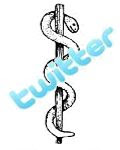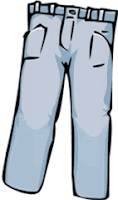I was trying to hunt down some software for a colleague of mine, so I posted his description of it to several of the profession-related e-mail lists I subscribe to. I ended with
I'm on Twitter, I use Ping.fm, I use Twhirl, I have a web site, I have a blog, I subscribe to numerous RSS feeds through a feed aggregator ... but I am not sure exactly what it is he wants. Do any of you know?
That prompted one listmate to ask
I am not on Twitter, I do not use Ping or Twhirl, I do not have a web site (though I do have a blog), and I do not subscribe to numerous RSS feeds. I am starting to wonder why so many people do. ... So ... am I shooting myself in the foot? Are these communication options offering people a significant upturn in work opportunities or enriching their professional and personal relationships? Are these, in fact, today's Tools For Success?
So I explained why I like social media:
What my business web site, blog, Twitter, Facebook, and LinkedIn do for me is give potential clients more arenas in which to find me. And find me, they have—in droves. I am perpetually busy; I haven't had a work dry spell in years now. Now, it helps that I've been freelancing full time for nearly 15 years and have 25 years' experience, so I'm well established. But if I were well established and less visible, far fewer clients would find me. I ask new clients how they found me, and they've found me through my web site, my blog, Twitter, Facebook, and LinkedIn. They've also found me through the online member directory of the Editorial Freelancers Association and through the online directory of Copyediting-L freelancers. They've found me through my ad on the web site of the Council of Science Editors.
I simply do not want to close off any avenue through which potential clients find me. I wasn't fond of the feast-or-famine roller coaster (to mix metaphors) of my early years as a freelancer. The absolute only way to get off that roller coaster is to constantly be doing marketing, whether your desktop is empty or piled high with projects. And the various social media venues make it much easier for me to market my services: I don't have to get on the phone and talk with people I've never met and who might not want to talk with me because they don't know me, I don't have to prepare snail-mail marketing letters, and I don't have to get all dressed up and meet potential clients in person.
At the moment, I'm incredibly grateful for those venues, because my family very much needs all the income I can bring in. The recession has made my cabinetmaker husband's wealthy clientele sit on its money, so the only income he's bringing in right now is from a low-paying part-time job as a driver for a grocery-delivery service. It isn't that he hasn't been looking for fuller employment, either. He's about to turn 48 and has 25 years' experience in his profession, as I do in mine. No one wants to hire someone whom they think has "too much" experience, because they think he'll demand high pay or won't work well with younger, less experienced managers—and they won't even give him a shot to see whether their prejudices are true. Without additional income from him, we are in danger of foreclosure on our mortgage. But because I am constantly booked with work, we can still pay all our other bills, including expensive health-insurance premiums, with my income alone. Except for our mortgage, I am nearly single-handedly supporting a family of four, no mean feat on New York State's Long Island.
So yeah, I'll spend the time necessary each day to maintain an active presence on multiple forms of social media, but I try not to let the process take up too much time.
The value of RSS feeds? Blog posts and news stories on topics I'm interested in come to me, saving me valuable time because I don't have to go hunt them down, one by one. I'll use all the time-saving devices I can find. I find it extremely helpful to my business to keep on top of information about industry trends. If' I'm out of the loop on major events and trends, I can't prepare for changes in my industry and will likely be less able to attract enough work to keep busy through every industry sea change.
Another listmate posted to say that he thinks social media sap people's thinking time and thus their creativity. He wrote:
Don't even get me started on Twitter, which strikes me as egotism run amok.
He explained to me later that the Twitter feeds he's
been encouraged to subscribe to are riddled with cute kid stories, pining for happy hours that are hours away, and cute back-and-forth—in other words, life as Facebook-status update.
That "egotism" charge really ticked me off. My response:
Twitter is a tool that universities use to let their students know about emergency conditions. It's a tool that people used today [July 30] in Texas to let people in the area of Texas A&M University know that if they hadn't heard already, they should evacuate the area because a large chemical plant was on fire and could be explosive. It's a tool that professors use to communicate online with their students. It's a tool that one town used to update commuters with BlackBerry devices regarding traffic snarls during a major event. It's a tool that medical journals use to draw in more readers, which could be seen as bad because it's a kind of advertising, but when journal staff members tweet, they often post headlines and links to quite helpful medical research—that's how I found out recently that the brand of insulin that I take just might be linked to increased rates of cancer.
E-mail can be abused, as it is by spammers. That doesn't make e-mail bad overall. Blogging can be abused, to cast aspersions on others or to impart misinformation. That doesn't make blogs bad overall. Facebook users can post inane and boring stuff; that doesn't mean everything posted to Facebook is valueless. Some, like me, post information there about their industry that others find helpful. And others use it to make contact with people they haven't seen in decades, which can be life-changing.
Once upon a time, the typewriter was seen as a bad thing because it lured women away from home (gasp!) to work in offices. But the world did not end because lots of women used typewriters. TV could be seen as evil, I suppose, because some of the shows on it are mushy oatmeal for the brain and the ads try to sell people junk they don't need. But it does have good uses: news coverage, broadcasts of political debates, broadcasts of classical or jazz music concerts ...
A tool is just a tool. And people don't have to use any particular tool if they don't want to. No one's forcing anyone to use Twitter or any other social media tool. But please don't tar all users of a tool with one broad brushstroke. We're not all egotistical or stupid or boring.
freelance marketing social media copyeditor copyediting publishing EditorMom














 July 10 will be the first annual
July 10 will be the first annual 
